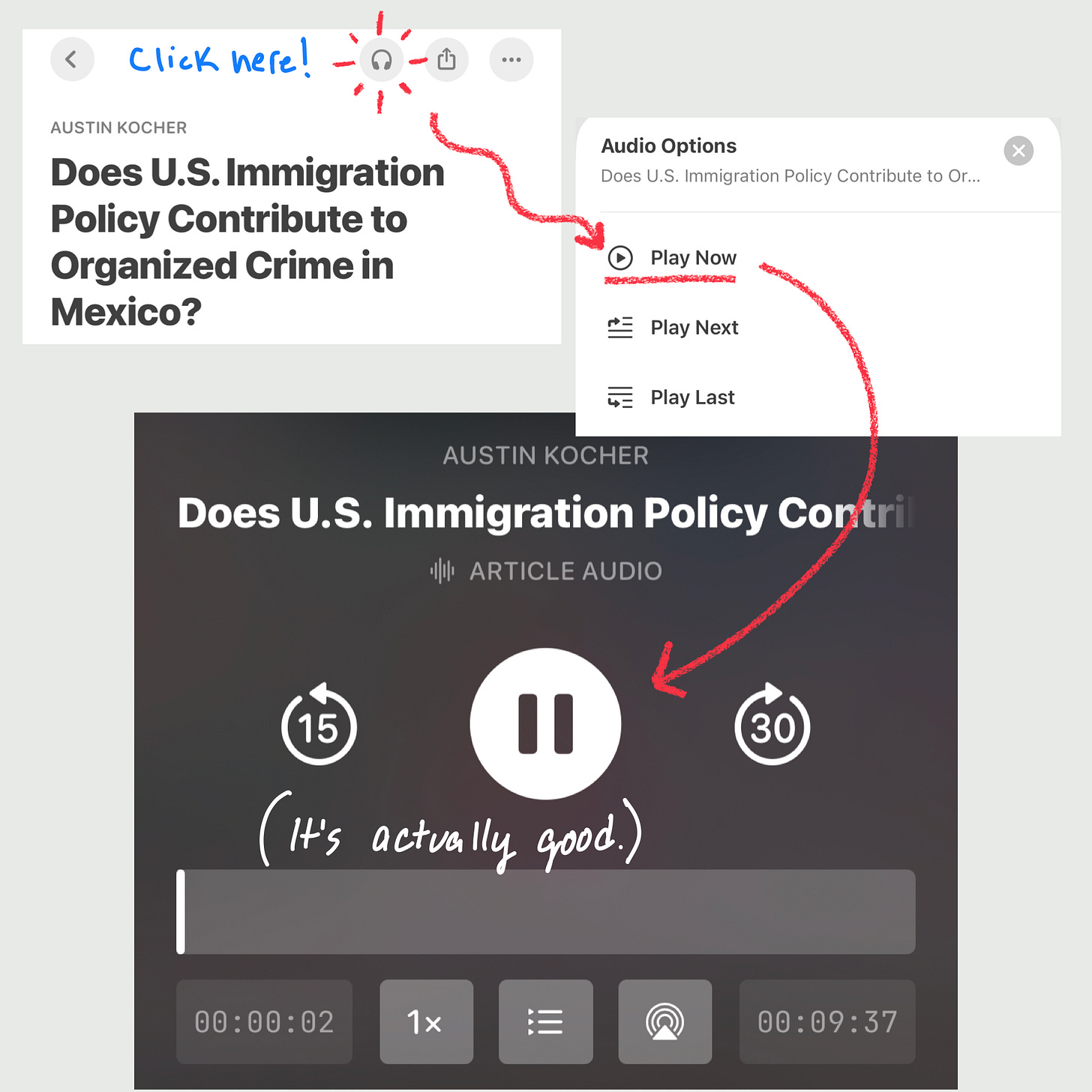Wednesday Vibes: Improvements to this Newsletter 👏, Immigration Book Recommendations📚, and One Thing You Might Not Know About TRAC 🤫
Welcome back from what I hope was a relaxing (and safe) July 4 holiday. I want to share three things with you today. And it’s really worth reading to the end, because the final note is a fascinating highlight about TRAC you might not already know.
But first, a few housekeeping items that illustrate some ways that I’m planning on growing this newsletter between now and the rest of the year, especially through more conversations with you.
As you may know, Twitter had another meltdown over the weekend, with users’ facing artificial restrictions on the number of tweets they could read per day (yadda-yadda, something about Musk not paying his bills). The chaos that ensued illustrated once again the importance of not relying on that already toxic platform for intelligent conversation.
To that end, I’m using more of Substack’s growing tools for more roundtable-like conversations and reader feedback to make this a place for healthy learning, debate, and exploration of immigration. If you’re the kind of person that tends to read but not comment, no pressure! But consider jumping into the conversation more and taking advantage of the “discussion-style” posts that are rolling out over the next few weeks. I know a lot of smart people with unique experiences and perspectives read this and I would be eager to learn from you. I’m really excited about this, and thanks for reading.
Okay, let’s get on with it.
1. Tired of reading? Listen to this post instead!
Did you know that you can listen to an audio version of any of my posts on your smartphone? I discovered this recently in the Substack app and it’s surprisingly good. This is how I listened to the most recent issue of the Border Chronicle—which is also on Substack, by the way.
It’s easy to do. Get the Substack app for iPhone or Android, go the article you want to listen to, and click the headphones at the top.
For instance, if you missed my Sunday post about migrant smuggling, you can listen to it here on the commute in to work or around the house.
2. Let’s talk about new immigration books.
I issued a call this week for suggestions of immigration books that you love (especially new ones) to add to my Summer 2023 immigration reading list. Go to the post below to add a recommendation. I will collect contributions through this weekend, then post the reading list next Monday. The list will include book websites and author website PLUS I will give a shout-out to everyone who recommends or endorses a book in the comments. Self-promotion *is* encouraged!
3. Did you know this about TRAC?
TRAC has been around for over 30 years and its co-founders, Sue Long and David Burnham, have have even longer professional lives, which means there are a variety of interesting stories and connections that I find fascinating. Here’s just one example.
In 1974, Karen Silkwood worked at the Kerr-McGee nuclear production plant outside of Crescent, Oklahoma. She was in a union fight with the plant's leadership over sloppy worker safety issues when she learned she had been contaminated with a lethal dose of plutonium.
She decided it was time to go public. So she set up a time to meet with a NYT journalist. But while driving to her meeting, her car ran off the road and she was killed. The mystery of her death was never solved, with some pointing to the possible role of drugs in causing the accident while others noting that on-scene details point to someone ramming her car from behind.

As speculation swirled, Karen became a cultural symbol. A documentary was made about her life and a character based on her was included in one of the storylines of the novel and film Cloud Atlas.
But who was that journalist? The New York Times journalist Karen was driving to talk to was none other than David Burnham, one of the founders and directors of TRAC. I find this story fascinating since it shows David’s tireless commitment to quality investigative journalism and tackling difficult transparency questions. David is a giant in his field and it’s an honor to work at research institute at Syracuse University he helped create.
Read more from an interview with David here as well as a contemporaneous account of Silkwood’s death from Rolling Stone in 1977.
(PS: Before leaving, would you mind leaving a like (🩶) below? It goes a long way to helping get this in front of new readers, and I’d appreciate it enormously. Thanks!)

Support public scholarship.
Thank you for reading. If you would like to support public scholarship and receive this newsletter in your inbox, click below to subscribe for free. And if you find this information useful, consider sharing it online or with friends and colleagues. I maintain a barebones site at austinkocher.com and I share immigration data, news, and research on Mastodon (@austinkocher), Twitter (@ackocher), and Instagram (@austinkocher). You can see my scholarly work on Google Scholar.





